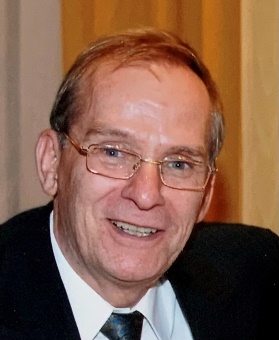Related Research Articles
{{Multiple issues|

Orthogonal frequency-division multiple access (OFDMA) is a multi-user version of the popular orthogonal frequency-division multiplexing (OFDM) digital modulation scheme. Multiple access is achieved in OFDMA by assigning subsets of subcarriers to individual users. This allows simultaneous low-data-rate transmission from several users.
Ashok Jhunjhunwala is an Indian academic and innovator. He received his B.Tech. from the Indian Institute of Technology, Kanpur and PhD from the University of Maine. He has been a faculty member at the Indian Institute of Technology Madras since 1981. He is the President of IIT Madras Research Park and Chairman of International Institute of Information Technology, Hyderabad. During his career, he has contributed extensively to technology innovation and adoption in the Indian context.

Sterlite Technologies Limited is an Indian optical and digital technology company, headquartered in Pune. It is listed on Bombay Stock Exchange and National Stock Exchange of India. It has 636 patents and is active in over 150 countries. The company is specialized in optical networking which consists of optical fiber and cables, hyper-scale network design, and deployment and network software.
Ramesh Garg is currently a dean of student and alumni affairs in IIT Ropar. Previously he was a professor at the Indian Institute of Technology, Kharagpur, India. Professor Garg is known for his work on microstrip antennas.

Internet in India began in 1986 and was initially available only to the educational and research community. General public access to the internet in India began on 15 August 1995. By 2023, India had more than 900 million Internet users. It is reported that in 2022 an average mobile Internet consumption in India was 19.5 GB per month and the mobile data usage per month rose from 4.5 exabytes in 2018 to 14.4 exabytes in 2022.
Centre of Excellence in Wireless Technology (CEWiT) is a nonprofit research society of IIT Madras set up to research potential innovations in wireless technology. The organization is set up with support from Ministry of Communication and IT and the Indian telecom industry.
In telecommunications, long-term evolution (LTE) is a standard for wireless broadband communication for mobile devices and data terminals, based on the GSM/EDGE and UMTS/HSPA standards. It improves on those standards' capacity and speed by using a different radio interface and core network improvements. LTE is the upgrade path for carriers with both GSM/UMTS networks and CDMA2000 networks. Because LTE frequencies and bands differ from country to country, only multi-band phones can use LTE in all countries where it is supported.

In telecommunications, 5G is the fifth-generation technology standard for cellular networks, which cellular phone companies began deploying worldwide in 2019, and is the successor to 4G technology that provides connectivity to most current mobile phones.

Uday B. Desai is an Indian academician and the founding director of Indian Institute of Technology Hyderabad. He is a Professor Emeritus in Electrical engineering Chancellor ICFAI Dehradun, Chancellor Anurag University, Hyderabad Honorary Distinguished Professor Plaksha University and a Strategic Consultant for TSDSI. He served as the director of IIT Hyderabad from June 2009 to July 2019, and is credited for taking it to rank among the top 10 engineering colleges in India in the NIRF engineering ranking. He was mentor director of IIT Bhilai from May 2016 to February 2017 and mentor director for IIIT Chittoor 2013–2018.

Timothy Aloysius Gonsalves is an Indian computer scientist and professor. During his academic career, he has been founder/co-founder of several institutions and companies. These include founder of Nilgiri Networks (P) Ltd, co-founder of NMSWorks Software (P) Ltd, co-founder of the TeNeT Group and RTBI at IIT Madras, and IIT Mandi Catalyst. Most notably, he was the founding Director of IIT Mandi in the Himalayan state of Himachal Pradesh from Jan. 2010 to Jun. 2020. He is currently Professor Emeritus (Honorary) at IIT Mandi. His academic interests include education for engineers of the future, computer networks, distributed systems, telecom software and performance evaluation among others.

The Next Generation Mobile Networks (NGMN) Alliance is a mobile telecommunications association of mobile operators, vendors, manufacturers and research institutes. It was founded by major mobile operators in 2006 as an open forum to evaluate candidate technologies to develop a common view of solutions for the next evolution of wireless networks. Its objective is to ensure the successful commercial launch of future mobile broadband networks through a roadmap for technology and friendly user trials. Its office is in Frankfurt, Germany.
V Ramgopal Rao is an Indian Academic serving as the Vice Chancellor of Birla Institute of Technology and Science, Pilani from February 2023 onwards. He was previously the director of IIT, Delhi for six years during 2016-2021.

Bernhard H. Walke is a pioneer of mobile Internet access and professor emeritus at RWTH Aachen University in Germany. He is a driver of wireless and mobile 2G to 5G cellular radio networks technologies. In 1985, he proposed a local cellular radio network comprising technologies in use today in 2G, 4G and discussed for 5G systems. For example, self-organization of a radio mesh network, integration of circuit- and packet switching, de-centralized radio resource control, TDMA/spread spectrum data transmission, antenna beam steering, spatial beam multiplexing, interference coordination, S-Aloha based multiple access and demand assigned traffic channels, mobile broadband transmission using mm-waves, and multi-hop communication.

Shyam Prabhakar Mardikar is The Group Chief Technology Officer - Mobility at Reliance Jio Infocomm Limited (India), an Indian multinational telecommunications services company, headquartered at Reliance Corporate Park, Navi Mumbai, Maharashtra, India, it operates a national LTE and 5G network with coverage across all 22 telecom circles.
Suhash Chandra Dutta Roy is an Indian electrical engineer and a former professor and head of the department of electrical engineering at the Indian Institute of Technology, Delhi. He is known for his studies on analog and digital signal processing and is an elected fellow of all the three major Indian science academies viz. Indian Academy of Sciences, Indian National Science Academy, National Academy of Sciences, India as well as the Institute of Electrical and Electronics Engineers, Institution of Electronics and Telecommunication Engineers, Systems Society of India and Acoustical Society of India, The Council of Scientific and Industrial Research, the apex agency of the Government of India for scientific research, awarded him the Shanti Swarup Bhatnagar Prize for Science and Technology, one of the highest Indian science awards for his contributions to Engineering Sciences in 1981.
Surendra Prasad is an Indian communications engineer, a former director and an Usha chair professor of the Indian Institute of Technology, Delhi. He is also an emeritus professor of Bharti School of Telecommunication Technology And Management, a joint venture of IIT Delhi and is known for developing new techniques, algorithms and hardware in signal processing. He is an elected fellow of all the three major Indian science academies viz. Indian Academy of Sciences, Indian National Science Academy and the National Academy of Sciences, India. as well as the Indian National Academy of Engineering. The Council of Scientific and Industrial Research, the apex agency of the Government of India for scientific research, awarded him the Shanti Swarup Bhatnagar Prize for Science and Technology, one of the highest Indian science awards for his contributions to Engineering Sciences in 1988.
Rakhesh Singh Kshetrimayum is an electrical engineer, educator and Professor in the department of Electronics and Electrical Engineering, Indian Institute of Technology Guwahati.
Ashwin Gumaste is an Indian computer engineer and institute chair professor at the department of computer science and engineering of the Indian Institute of Technology, Bombay. He is known for his work on Carrier Ethernet Switch routers—the largest technology transfer between any IIT and industry.
In telecommunications, 6G is the designation for a future technical standard of a sixth-generation technology for wireless communications.
References
- ↑ "IIT-B professor develops project to make Internet accessible in rural India". 23 January 2017. Retrieved 1 May 2020.
- ↑ www.ETTelecom.com. "Government appoints Abhay Karandikar as Department of Science & Technology Secretary - ET Telecom". ETTelecom.com. Retrieved 10 October 2023.
- ↑ "Vice-Chairman, TSDSI" (PDF).
- ↑ "Chairman, TSDSI" (PDF).
- ↑ "TSDSI, Organizational Partner of 3GPP".
- ↑ "IEEE SA Standards Medallion".
- ↑ "5G field trials likely by year-end, deployments by mid-2020: Panel chief". Times of India . Retrieved 1 May 2020.
- ↑ Manchanda, Megha (14 June 2019). "Telecom panel tells Trai to review recommendations on 5G spectrum sale". Business Standard . Retrieved 1 May 2020.
- ↑ "TRAI asked to revisit spectrum auction recommendations". The Hindu . 13 June 2019. Retrieved 1 May 2020.
- ↑ "In Conversation with Prof. Abhay Karandikar, Director, IIT Kanpur". voxiitk.com. Retrieved 30 October 2024.
- ↑ "IIT Bombay launches technology centre for internal security". The Economic Times.
- ↑ "Eisodus Networks Private Limited Information - Eisodus Networks Private Limited Company Profile, Eisodus Networks Private Limited News on The Economic Times". The Economic Times.
- ↑ "Gram Marg - Rural Broadband Technology".
- ↑ "India's first TV White Space test bed in Palghar".
- ↑ "IIT Bombay wins Mozilla Open Innovation challenge".
- ↑ "Frugal 5G - Working Group in IEEE". Archived from the original on 20 August 2019.
- ↑ "Software Defined Networking - IEEE standard in 5G". Archived from the original on 12 March 2020.
- ↑ "Member (part-time), TRAI".
- ↑ "Saankhya Labs appoints Abhay Karandikar to its Board of Advisors". Times of India. 15 January 2020. Retrieved 1 May 2020.
- ↑ "Chairperson, 5G Spectrum Policy".
- ↑ "Chairman, Committee on Experimental Spectrum for 5G and other trials".
- ↑ "Chairman, Defence Standards Development Authority (SDA)" (PDF).
- ↑ "Vice-Chairman, 3GPP PCG".
- ↑ "Connecting the Unconnected Award".
- ↑ "Winner of Mozilla Open Innovation Challenge".
- ↑ "VASVIK Industrial Research Award". Archived from the original on 4 March 2016. Retrieved 20 August 2019.
- ↑ "NASI-Reliance Industries Platinum Jubilee Award".
- ↑ "Dr. Vikram Sarabhai Research Award".
- ↑ "Prof K Sreenivasan Memorial Award of IETE".
- ↑ "Patents by Inventor Abhay Karandikar".